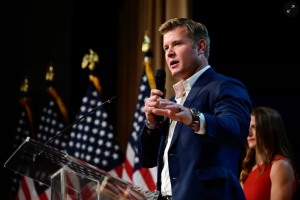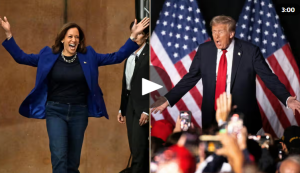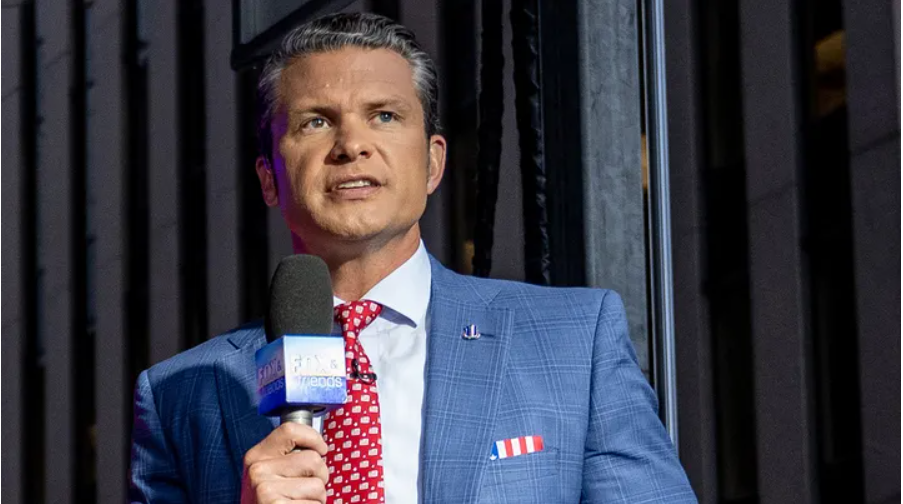Liz Cheney, a former Republican congresswoman and prominent Trump critic, has urge Americans to accept the election results “whether we like the outcome or not.”
Cheney, who campaigned for Kamala Harris, said Americans, the courts, members of the press and those serving in the federal, state and local governments “must now be the guardrails of democracy.”
“We now have a special responsibility, as citizens of the greatest nation on earth, to do everything we can to support and defend our Constitution, preserve the rule of law, and ensure that our institutions hold over these coming four years,” she wrote.
Victoria Bekiempis
Republican Tim Sheehy’s challenge for the Montana Senate seat was considered a referendum on whether Democrats can win in largely rural states, which have moved to Donald Trump’s far-right brand of Republicanism.
The race prompted questions about whether grassroots campaigning – which historically has proved successful in Montana – is at all effective when news coverage and campaign spending have made local politics national.
Montana, which has a population of 1.1 million, saw $280m in campaign ad spending, according to the Associated Press.
Pennsylvania and Ohio, which saw $340m and about $500m in respective spending, have about 10 times the population of the western state, further underscoring its perceived importance to both political parties.
Republican Tim Sheehy defeats three-term Montana senator Jon Tester
Republican Tim Sheehy is projected to defeat three-term incumbent Montana senator Jon Tester, flipping a closely watched Senate seat and adding to the GOP’s newly won majority in the upper House.
Sheehy, a former Navy SEAL, ran as a Donald Trump-supporting conservative in a state where he is immensely popular.

Tester – a moderate and the Senate’s only working farmer – was considered one of the most vulnerable Democrats on the ballot nationwide. He was the only Democrat holding statewide office in Montana, which has voted for the Republican presidential candidate in every contest since 1992.
The Guardian relies on the Associated Press to determine the outcomes of elections across the United States. The New York-based global news agency has a presence in every US state and a long and authoritative history of determining the winners of elections at the presidential, congressional and state level. Here is more information about their process.
Sometimes fear triumphs over hope. Donald Trump’s shocking victory in the 2016 US presidential election was described as a leap into the political unknown. This time there is no excuse. America knew that he was a convicted criminal, serial liar and racist demagogue who four years ago attempted to overthrow the government. It voted for him anyway.
The result is a catastrophe for the world. It saw Kamala Harris’s competence and expertise, her decency and grace, her potential to be the first female president in America’s 248-year history. It also saw Trump’s venality and vulgarity, his crass insults and crude populism, his dehumanisation of immigrants that echoed Adolf Hitler. And the world asked: how is this race even close?
But elections hold up a mirror to a nation and the nation does not always like what it sees.
Future historians will marvel at how Trump rose from the political dead. When he lost the 2020 election to Joe Biden, people gathered outside the White House to celebrate, brandishing signs that said, “Bon Voyage”, “Democracy wins!”, “You’re fired!”, “Trump is over” and “Loser”. There was a tone of finality, a sense that, after four gruelling years, this particular national nightmare was over.

But Trump could do no wrong in the eyes of his cult-like following, a freakishly resilient appeal that has three main components.
First, there is the celebrity and successful businessman persona, fashioned over years by his book The Art of the Deal and the reality TV show The Apprentice. Harris recruited numerous big-name endorsers such as Taylor Swift and Beyoncé; Trump was star of his own show.
Second, Trump has understood that, whereas Ronald Reagan and Barack Obama resonated in an era of aspiration, this is an age of anxiety. The upper-working class and lower-middle class fear loss of status and yearn for a safety blanket. Young people worry they will be worse off than their parents’ generation and unable to buy homes. Many, wrongly, perceive Trump as an economic populist because he rails against elites and “says it like it is” or “speaks how they feel” or “doesn’t give a fuck”.
Third, there is Trump the culture warrior. For nearly a decade he has tapped into America’s id: a long and painful racial history of progress and backlash, stoked anew by the election of Obama and white Christians finding themselves in the minority. Xenophobia is at the heart of his political identity. In addition, his campaign spent millions on ads fuelling hysteria about transgender rights (“Kamala’s agenda is they/them, not you”).
Together, with a sinister assist from billionaire Elon Musk, it was enough to eke out victory.



